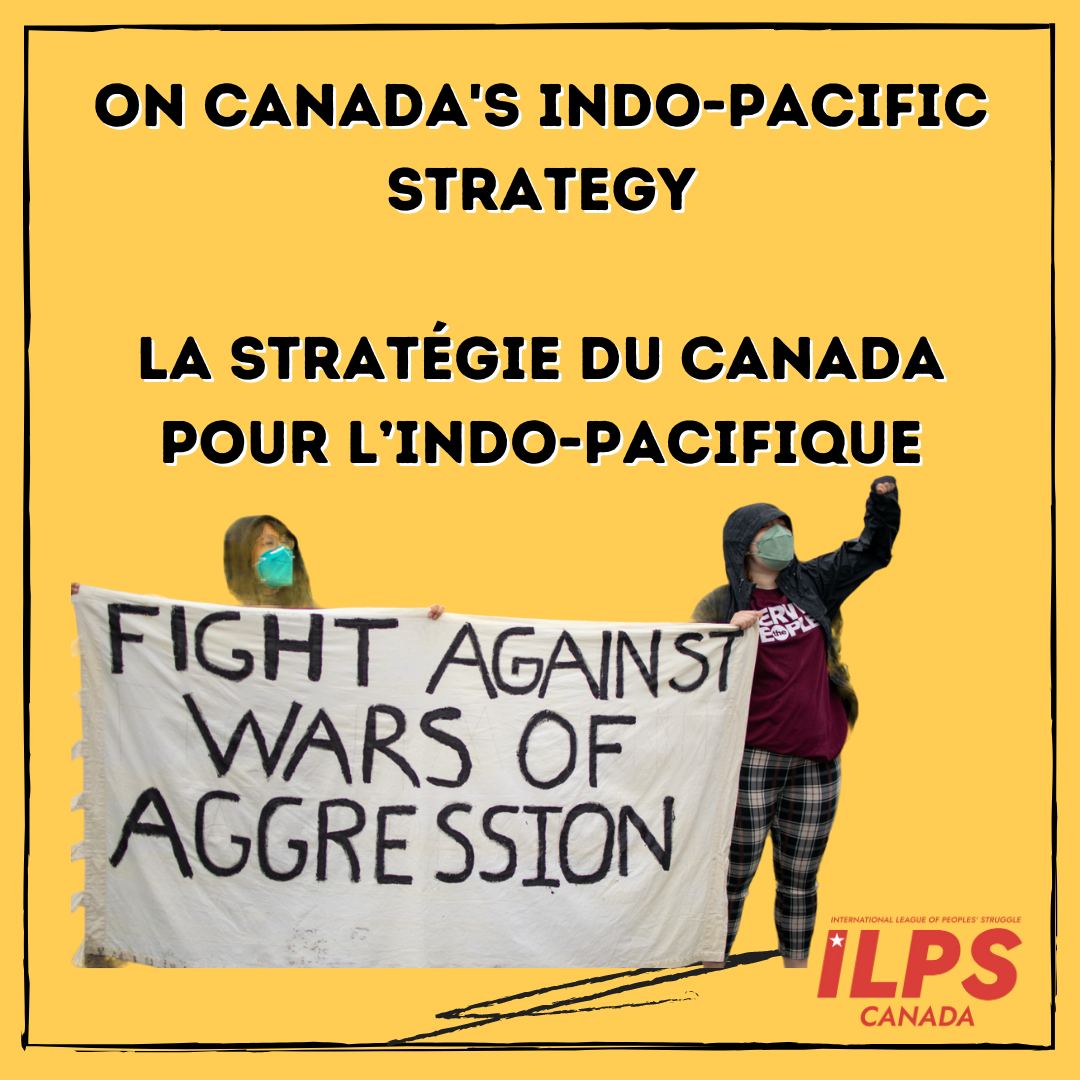ILPS in Canada denounces the Trudeau government’s Indo-Pacific strategy, which was announced in Vancouver on November 27, 2022. The Canadian Indo-Pacific strategy follows the announcement of the US Indo-Pacific Strategy in February 2022 and claims to be a “generational shift” in Canadian foreign policy. The strategy plans for almost $2.3 billion in investments over 5 years, with more than a third of the funding ($720.7 million) going towards military initiatives.

The Indo-Pacific strategy makes explicit its goals of countering the rise of China’s influence in the region and calls China “an increasingly disruptive global power” throughout its text. As such, the strategy proposes increasing Canadian naval presence in the South China Sea, increasing Canadian military deployment in military exercises in the Asia-Pacific, and offering Canadian military training to countries such as the Philippines and Indonesia. Furthermore, Canada aims to contribute to additional sanctions against the Democratic People’s Republic of Korea (DPRK) by continuing naval missions near the Republic of Korea (ROK) under its Operation NEON. Finally, the strategy proposes strengthening Canada’s internal intelligence networks such as CSIS and CSE, and its contributions to the Five Eyes, in order to supposedly “protect Canadians from foreign influence”.
It is clear from these military initiatives that Canada aims to follow the lead of the US and NATO to encircle and to provoke increased conflict with China, which could lead to destruction on an unprecedented scale. Additionally, increased military spending is ultimately used as a tool to generate profit for the ruling class. As funding for social services such as healthcare, education, and housing remains inadequate and as the working class is suffering under the rising cost of living, it is unconscionable that these needs are being neglected while the war machine expands rapidly.
Furthermore, the Indo-Pacific strategy harms the people of the region. Canada’s increased military aid to countries such as the Philippines is irresponsible when the Armed Forces of the Philippines have been found responsible for human rights abuses in the Philippines, including extrajudicial killings and the displacement of rural and Indigenous communities. In Korea, Canada’s proposal to increase its enforcement of sanctions against the DPRK contributes to the ongoing humanitarian crisis as civilians are denied access to vital medicines and the other necessities of life.
In addition to its military initiatives, the economic initiatives of the Indo-Pacific strategy are also problematic. The strategy proposes increased immigration programs from Indo-Pacific nations to Canada. Without a regularization program in place, these programs may be used to give Canada more sources of cheap labour and to leave more people in Canada with precarious status. Additionally, the strategy proposes new free-trade agreements with Indo-Pacific nations, which would only benefit executives in corporate Canada and not the working masses.
ILPS in Canada stands firm against Canada’s agenda of increasing its corporate and military interests in the Asia-Pacific. Money should be used towards peoples’ needs, not military and corporate greed. We call on our allies to join the movement to resist US-led war and to demand a just peace in the Indo-Pacific.



